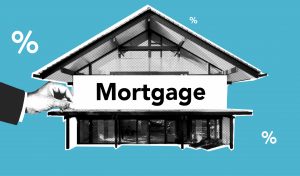
Understanding Foreclosures
It is an unfortunate commentary, but when economic activity declines and housing activity decreases, more real property enters the foreclosure process. High interest rates and creative financing arrangements are also contributing factors.
When prices are rapidly accelerating during a real estate “bonanza”, many people go to any lengths available to get into the market through investments in vacation homes, rental housing and trading up to more expensive properties. In some cases, this results in the taking on of high interest rate payments and second, third and even fourth deeds of trust. Many buyers anticipate that interest rates will drop and home prices will continue to escalate. It is possible that neither will occur and borrowers may be faced with large balloon payments becoming due. When payments cannot be met, the foreclosure process looms on the horizon.
In the foreclosure process, one thing should be kept in mind: as a general rule, a lender would rather receive payments than receive a home due to a foreclosure. Lenders are not in the business of selling real estate and will often try to accommodate property owners who are having payment problems. The best plan is to contact the lender before payment problems arise. If monthly payments are too hefty, it may be that a lender will be able to make some alternative payment arrangements until the owner’s financial situation improves.
Let’s say, however, that a property owner has missed payments and has not made any alternate arrangements with the lender. In this case, the lender may decide to begin the foreclosure process. Under such circumstances, the lender, whether a bank, savings and loan or private party, will request that the trustee, often a title company, file a notice of default with the county recorder’s office. A copy of the notice is mailed to the property owner.
If the default is due to a balloon payment not being made when due, the lender can require full payment on the entire outstanding loan as the only way to cure the default. If the default is not cured, the lender may direct the trustee to sell the property at a public sale.
In cases of a public sale, a notice of sale must be published in a local newspaper and posted in a public place, usually the courthouse, for three consecutive weeks. Once the notice of sale has been recorded, the property owner has until 5 days prior to the published sale date to bring the loan current. If the owner cures the default by making up the payments, the deed of trust will be reinstated and regular monthly payments will continue as before.
After this time, it may still be possible for the property owner to work out a postponement on the sale with the lender. However, if no postponement is reached, the property goes on the block. At the sale, buyers must pay the amount of their bid in cash, cashier’s check or other instrument acceptable to the trustee. A lender may “credit bid” up to the amount of the obligation being foreclosed upon.
With the recent attention given to foreclosure, there also has been corresponding interest in buying foreclosed properties. However, caveat emptor: buyer beware. Foreclosed properties are very likely to be burdened with overdue taxes, liens and clouded titles. A buyer should do his homework and ask a local title company for information concerning these outstanding liens and encumbrances. Title insurance may or may not be available following a foreclosure sale and various exceptions may be included in any title insurance policy issued to a buyer of a foreclosed property.
Your local title company will be happy to provide additional information.
Thinking About Buying a Foreclosure?
With the housing bubble burst and the subprime mortgage crisis, millions of homeowners found themselves unable to make their mortgage payments. Many found themselves owing more on the house than the home was worth. Many just walked away from their homes. As a result of these complicated issues, millions of homes were foreclosed.
While this isn’t the only reason for which homes are foreclosed, it has been a widespread one. With all the foreclosed properties, there has also been extensive interest in buying these properties at a bargain price.
It is true that foreclosed properties can be priced at a significant discount, but they are also a much riskier investment. Before making an offer on a foreclosed property, do your due diligence.
Things you must do before buying a foreclosure:
- Do a title search - make sure that when you purchase a foreclosure that you are the only person who has any ownership claim
- Check for liens - find out if there are any liens against the property because you will be responsible for paying them
- Check for a second mortgage - you don’t want to be surprised by an extra mortgage that you will need to pay
- Know how good of a “bargain” you’re getting - foreclosures are sold “as is” and in many cases you will not be able to do a proper inspection. You may end up paying thousands of dollars repairing the property before it is fit to be lived in.
It is also important to consider that there are different types of foreclosure properties and each type comes with its own advantages and disadvantages. The different types of foreclosure purchases are:
- Pre-foreclosure
- Auction
- Real Estate Owned (REO), also called “bank owned”
Pre-Foreclosure
A pre-foreclosure is when you buy the home directly from the homeowner, before the bank officially forecloses. This type of purchase does not require as much capital as other foreclosures. Also, since you are purchasing straight from the homeowner, you will be able to gather all of the necessary information, such as inspection reports, title information, etc. that may not be available with other foreclosure properties. Once you take over the mortgage, you will be responsible for all future payments as well as any overdue back payments.
Auction
A foreclosure property will usually end up at an auction. Real estate auction practices vary by state but common practice is for the auction to be held on courthouse steps, in front of the foreclosed home, or at the county clerk’s office.
Real estate auctions offer the best chance for a great deal but also hold the greatest risk. Auction properties are sold as is, with no opportunity for potential buyers to perform inspections. When buying a home at auction, the buyer must pay cash, usually a cashier’s check. It is also possible that there may still be tenants living in the home. In such a case, you would be responsible for the often costly eviction process.
REO
Once a foreclosure has gone to auction and failed to sell, it becomes a Real Estate Owned, or bank owned, property. Most homes do not sell at auction, most fail to even get any bids.
An REO property is the least likely of the foreclosure properties to represent a bargain, but it is also the least risky. The property can be fully inspected, any title issues can be found and dealt with, and the sale can be subject to a mortgage. REO properties also tend to be in better condition than other foreclosure properties.
Another thing to keep in mind when purchasing a foreclosure is that some states have a redemption period that allows the original owner to buy back the property by paying the remaining balance owed. You may be able to have this redemption period waived, so check the state laws on this topic before purchasing.
Still interested in buying a foreclosure property? If so, always do your research before purchasing!












































